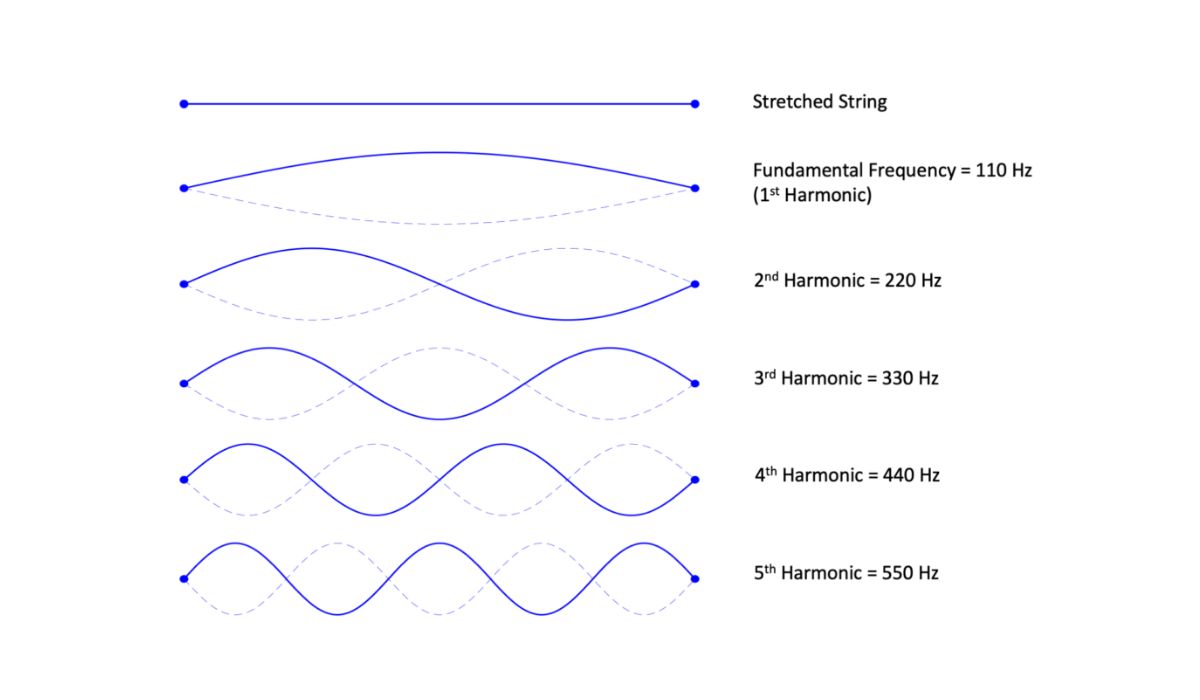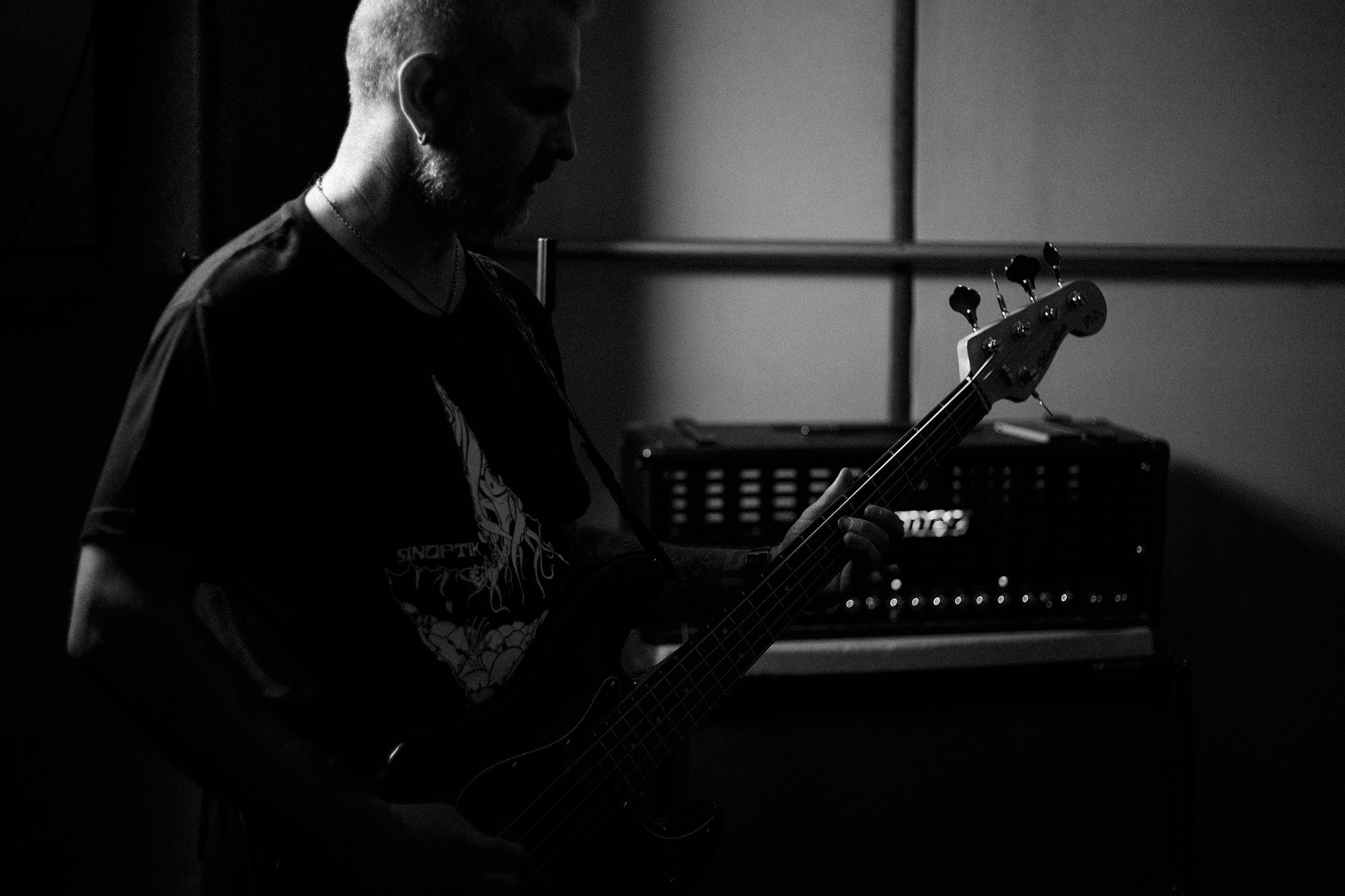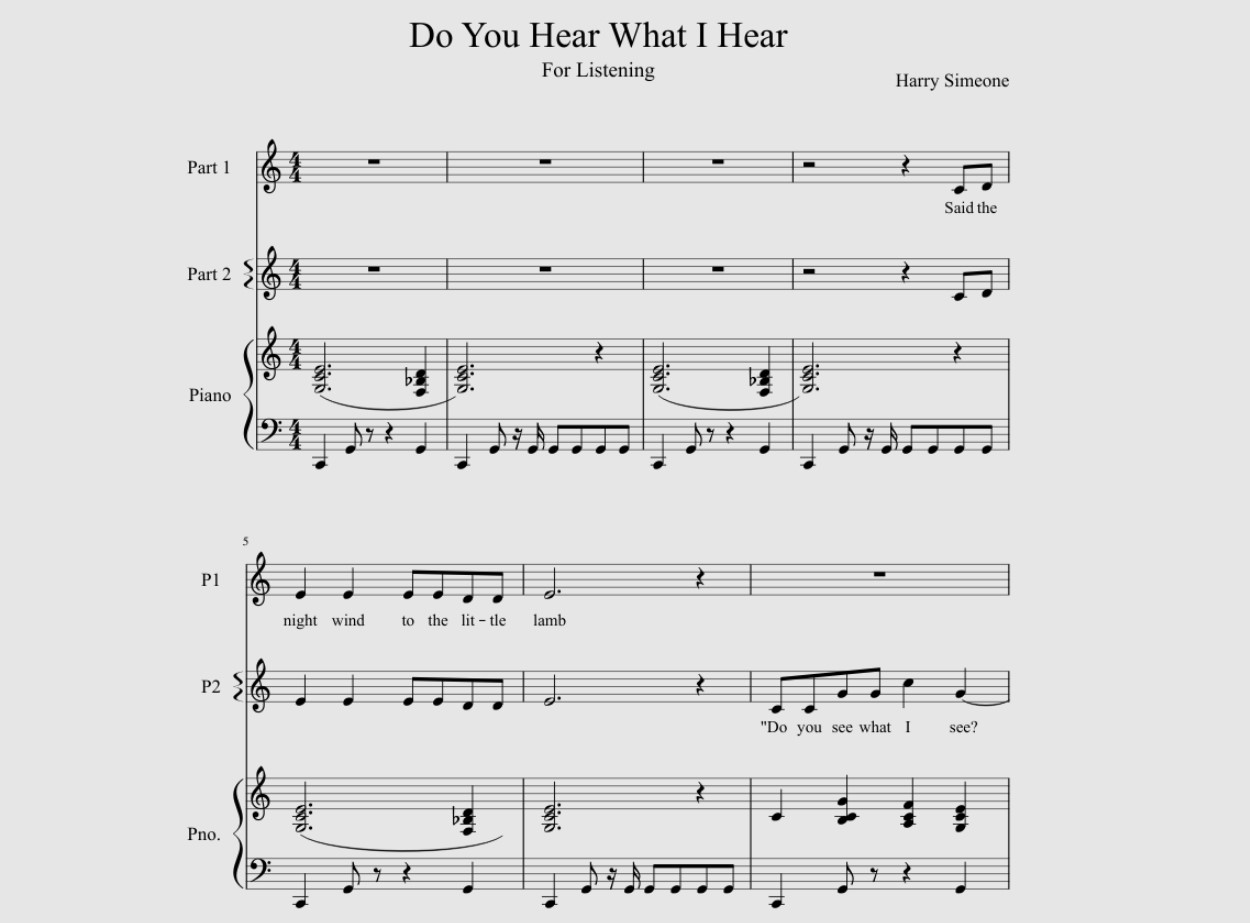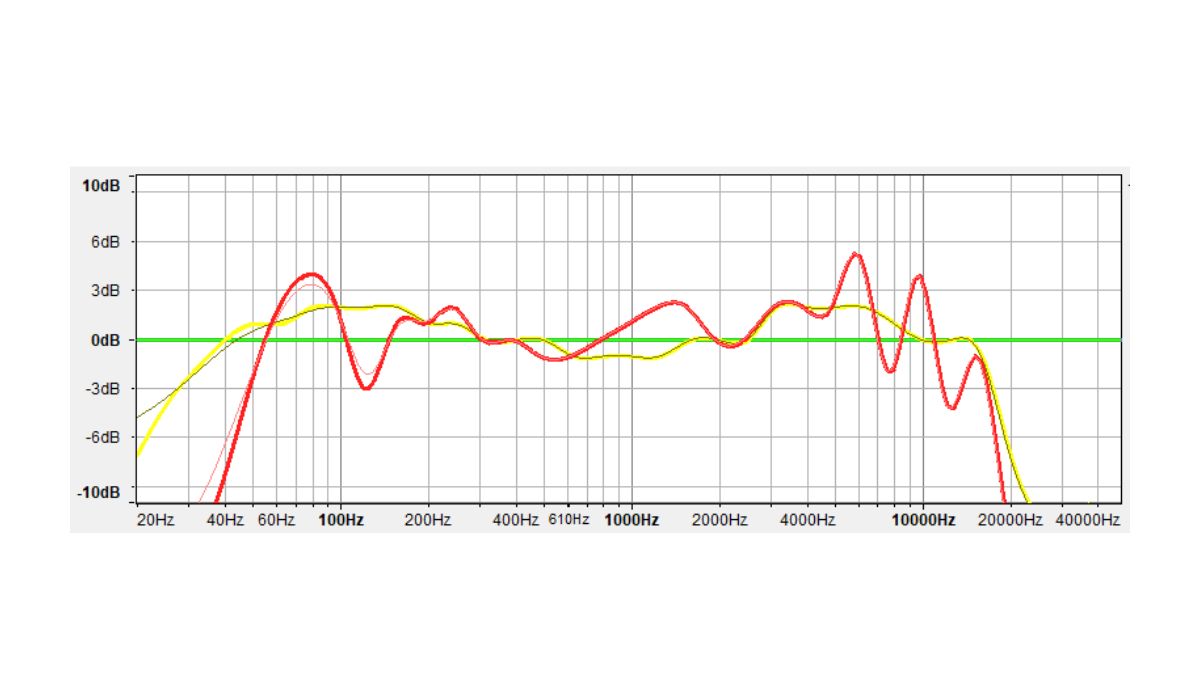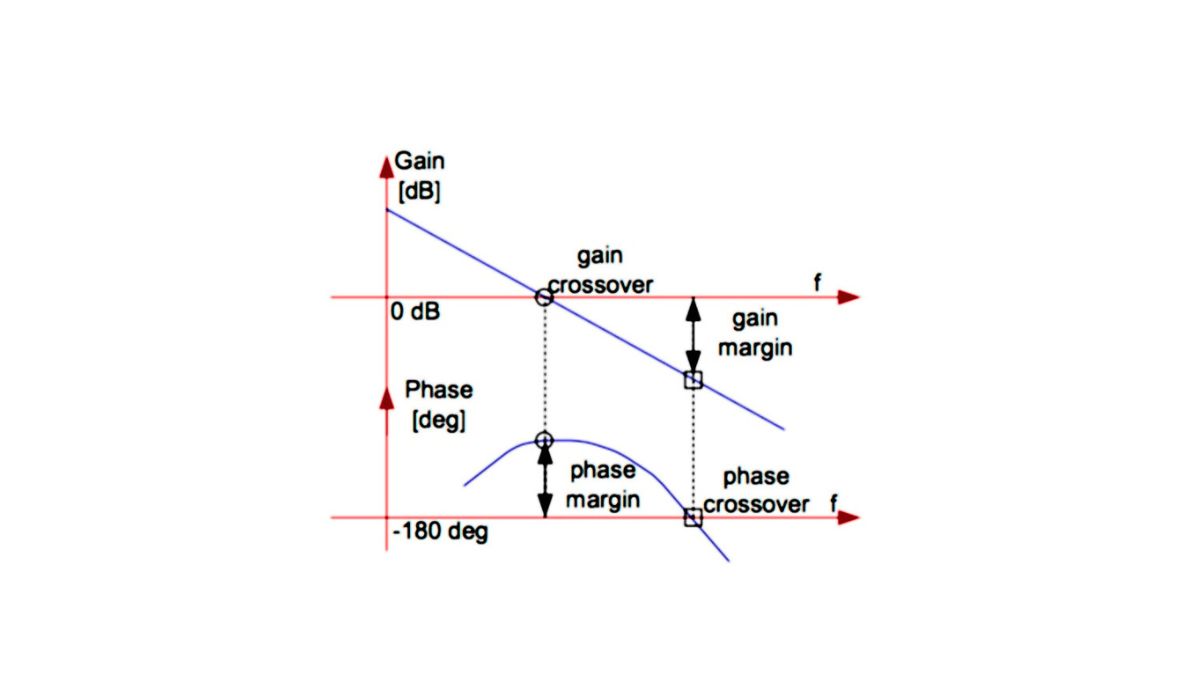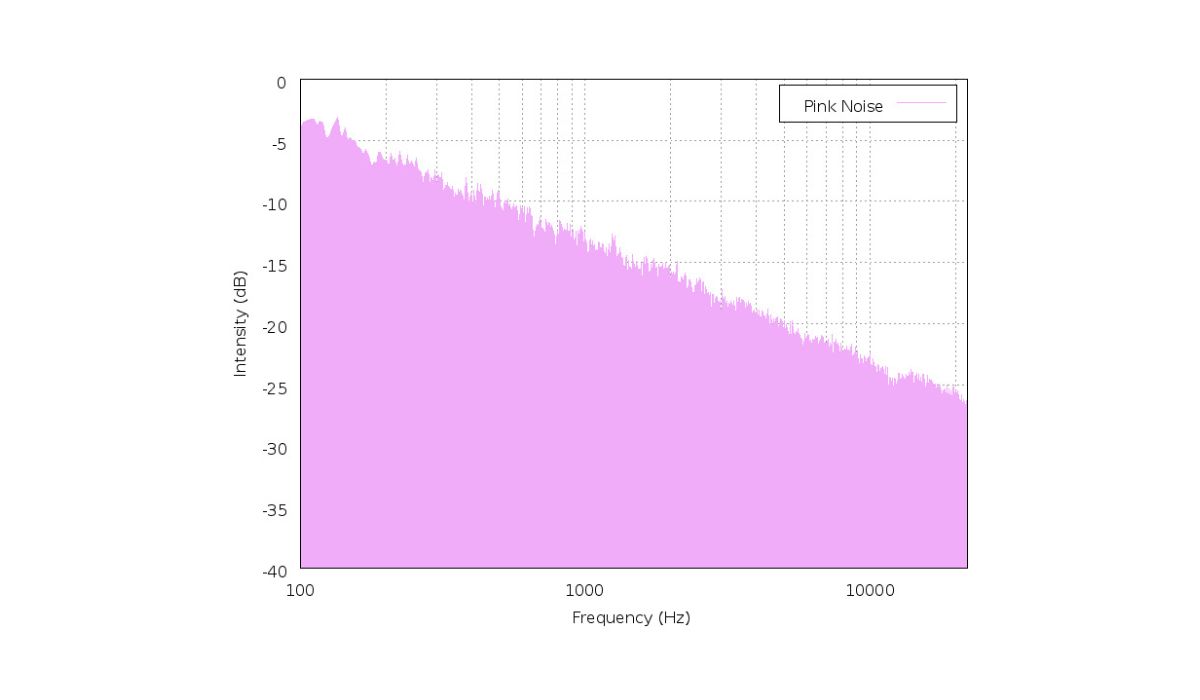Home>Events & Info>Frequency>What Is Low-Frequency Hearing Loss
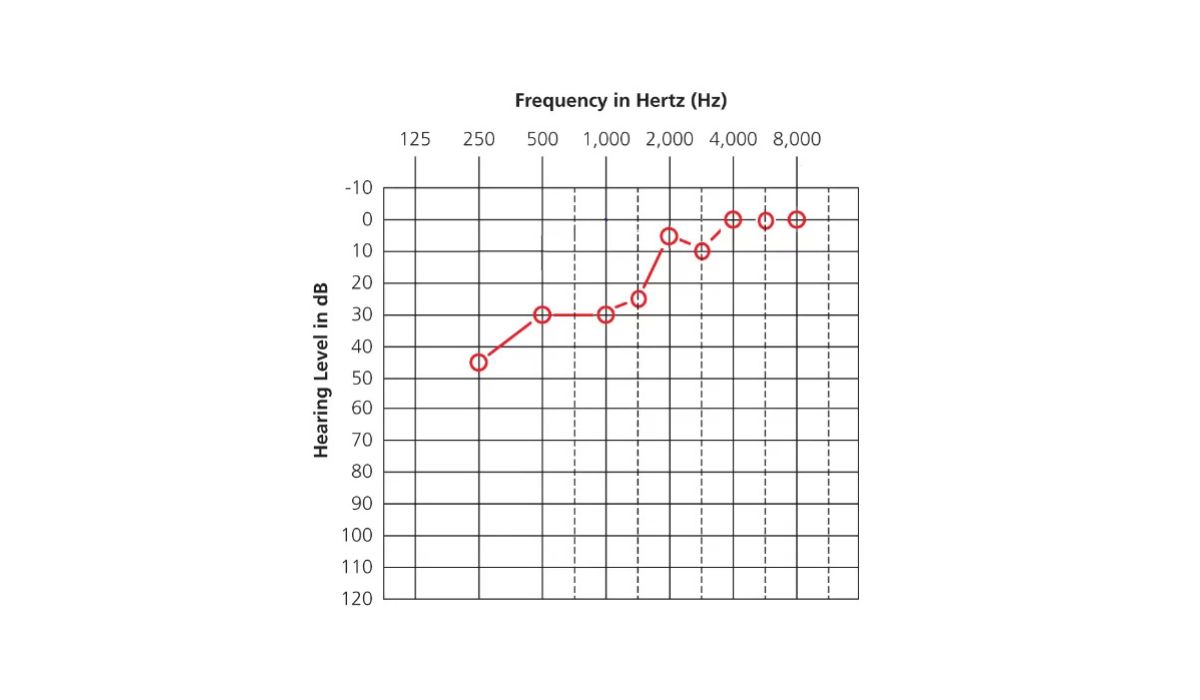

Frequency
What Is Low-Frequency Hearing Loss
Published: February 18, 2024
Learn about low-frequency hearing loss, its causes, and treatment options. Understand the impact of frequency on hearing and how it affects your overall auditory health.
(Many of the links in this article redirect to a specific reviewed product. Your purchase of these products through affiliate links helps to generate commission for AudioLover.com, at no extra cost. Learn more)
Table of Contents
Introduction
Understanding Low-Frequency Hearing Loss
Low-frequency hearing loss is a condition that affects the ability to hear sounds in the lower frequencies, typically below 2,000 Hertz. While high-frequency hearing loss is more commonly known, low-frequency hearing loss can also have a significant impact on an individual's quality of life. Understanding the causes, symptoms, and treatment options for low-frequency hearing loss is crucial in addressing this condition effectively.
This article aims to provide a comprehensive overview of low-frequency hearing loss, including its causes, symptoms, diagnosis, and management. By shedding light on this often overlooked aspect of hearing loss, we hope to raise awareness and empower individuals to seek proper care and support.
Stay tuned as we delve into the intricacies of low-frequency hearing loss, unraveling its complexities and offering insights into its diagnosis and management. Whether you or someone you know is affected by this condition, gaining a deeper understanding of low-frequency hearing loss can pave the way for improved communication, enhanced well-being, and a better quality of life.
Understanding Low-Frequency Hearing Loss
Low-frequency hearing loss refers to the impaired ability to hear sounds in the lower frequency range, typically below 2,000 Hertz. While high-frequency hearing loss is more widely recognized, low-frequency hearing loss can significantly impact an individual's auditory perception and communication abilities.
The human ear is designed to perceive a wide range of frequencies, allowing us to experience the richness of sound in our environment. Low-frequency sounds, such as the deep rumble of thunder or the bass notes in music, contribute to our overall auditory experience. However, when an individual experiences difficulty in hearing these lower frequency sounds, it can lead to challenges in understanding speech, enjoying music, and engaging in everyday communication.
Unlike high-frequency hearing loss, which often results from age-related factors or prolonged exposure to loud noise, low-frequency hearing loss can stem from various causes, including genetic predisposition, certain medical conditions, or exposure to specific types of environmental noise.
Individuals with low-frequency hearing loss may struggle to discern speech sounds, especially consonants, which are crucial for understanding spoken language. This can lead to difficulties in following conversations, particularly in noisy environments. Moreover, low-frequency hearing loss can impact one's ability to appreciate the full spectrum of music, as the bass and rhythm elements may become less audible.
Understanding the nuances of low-frequency hearing loss is essential for both individuals experiencing these challenges and the healthcare professionals who support them. By recognizing the distinct characteristics of this type of hearing loss, tailored interventions and accommodations can be implemented to address the specific needs of affected individuals.
In the subsequent sections, we will explore the causes, symptoms, diagnosis, and management of low-frequency hearing loss, providing valuable insights for those seeking a deeper understanding of this audiological condition. Whether you are personally impacted by low-frequency hearing loss or wish to broaden your knowledge in this area, this exploration aims to offer clarity and guidance in navigating the complexities of this condition.
Causes of Low-Frequency Hearing Loss
Low-frequency hearing loss can stem from various underlying causes, each contributing to the impairment of hearing in the lower frequency range. Understanding these causes is essential for identifying and addressing the specific factors that may be contributing to an individual’s hearing difficulties.
1. Genetic Predisposition: In some cases, low-frequency hearing loss may have a genetic component, meaning that an individual inherits a predisposition to experiencing challenges in hearing lower frequency sounds. Genetic factors can influence the development and function of the auditory system, potentially leading to differences in the perception of specific frequencies.
2. Ototoxic Medications: Certain medications, known as ototoxic drugs, have the potential to cause damage to the delicate structures of the inner ear, including the cochlea, which is responsible for detecting sound vibrations. Prolonged exposure to ototoxic medications can contribute to low-frequency hearing loss, highlighting the importance of monitoring the potential auditory side effects of specific pharmaceutical treatments.
3. Noise Exposure: While high-frequency hearing loss is often associated with exposure to loud noise, low-frequency hearing loss can also result from prolonged or intense exposure to specific types of low-frequency noise. Occupational settings, such as those involving heavy machinery or industrial equipment, may subject individuals to low-frequency noise that can impact their hearing over time.
4. Medical Conditions: Certain medical conditions, such as Meniere’s disease, otosclerosis, and other disorders affecting the inner ear or auditory pathways, can contribute to low-frequency hearing loss. These conditions may disrupt the transmission of low-frequency sounds to the auditory system, leading to difficulties in perceiving and processing these specific frequencies.
5. Aging Process: While age-related hearing loss typically affects higher frequencies, some individuals may experience a combination of high and low-frequency hearing loss as part of the natural aging process. As the sensory cells within the cochlea gradually decline in function, the ability to detect lower frequency sounds may also be compromised.
By recognizing the diverse array of factors that can contribute to low-frequency hearing loss, healthcare professionals can tailor their diagnostic approaches and interventions to address the specific underlying causes affecting each individual. In the subsequent sections, we will delve into the symptoms, effects, diagnosis, and treatment options for low-frequency hearing loss, offering valuable insights into managing this audiological condition effectively.
Symptoms and Effects of Low-Frequency Hearing Loss
Recognizing the symptoms and understanding the potential effects of low-frequency hearing loss is crucial for individuals and healthcare professionals alike. By being aware of the signs associated with this condition and its impact on daily life, appropriate measures can be taken to address the challenges faced by those experiencing low-frequency hearing loss.
Symptoms:
1. Difficulty Understanding Speech: Individuals with low-frequency hearing loss may struggle to comprehend speech, particularly in environments with background noise. This difficulty often stems from the reduced ability to hear lower frequency consonant sounds, leading to challenges in distinguishing words and understanding conversations.
2. Impaired Music Perception: Low-frequency hearing loss can affect an individual’s ability to fully appreciate the bass elements and rhythm in music. As a result, the overall musical experience may be diminished, impacting one’s enjoyment of various genres and musical compositions.
3. Muffled or Distorted Sounds: Sounds in the lower frequency range may be perceived as muffled or distorted, affecting the clarity of environmental noises and speech. This can contribute to feelings of auditory isolation and frustration in everyday listening situations.
Effects:
1. Communication Challenges: The difficulty in understanding speech, especially in noisy settings, can lead to communication barriers and social withdrawal. Individuals with low-frequency hearing loss may find it challenging to engage in conversations, leading to feelings of isolation and frustration.
2. Impact on Social Interactions: The effects of low-frequency hearing loss can extend to social interactions, as affected individuals may experience difficulties in group settings, social gatherings, and public events. This can influence their overall participation and enjoyment in various social activities.
3. Emotional Well-Being: The impact of low-frequency hearing loss on an individual’s emotional well-being should not be overlooked. Struggling to hear and communicate effectively can contribute to feelings of stress, anxiety, and a sense of being misunderstood, potentially affecting one’s overall mental health.
By recognizing these symptoms and effects, individuals and healthcare professionals can work together to implement strategies and interventions aimed at mitigating the challenges associated with low-frequency hearing loss. In the subsequent sections, we will explore the diagnosis and treatment options available for addressing this condition, offering valuable insights for those seeking support and guidance in managing their auditory health.
Diagnosis and Treatment Options
Diagnosing low-frequency hearing loss involves a comprehensive assessment of an individual’s auditory function and may require specialized testing to determine the extent and nature of the hearing impairment. Additionally, identifying the underlying causes of low-frequency hearing loss is crucial for guiding appropriate treatment strategies and interventions.
Diagnosis:
1. Audiological Evaluation: A thorough audiometric assessment, including pure-tone and speech audiometry, can help identify the specific frequencies at which an individual may be experiencing hearing difficulties. This evaluation provides valuable insights into the extent of low-frequency hearing loss and its impact on speech perception.
2. Tympanometry and Otoacoustic Emissions (OAE) Testing: These tests can assess the function of the middle ear and the integrity of the cochlear hair cells, offering additional diagnostic information to aid in the characterization of low-frequency hearing loss.
3. Medical History and Examination: Gathering a comprehensive medical history and conducting a physical examination can help identify potential underlying conditions or risk factors contributing to low-frequency hearing loss, such as genetic predisposition, ototoxic medication use, or specific medical disorders affecting the auditory system.
Treatment Options:
1. Hearing Aids: Depending on the nature and severity of low-frequency hearing loss, hearing aids with specialized programming for amplifying lower frequency sounds may be recommended. These devices can help improve speech intelligibility and enhance the perception of environmental sounds in the lower frequency range.
2. Assistive Listening Devices: In situations where hearing aids alone may not fully address the challenges associated with low-frequency hearing loss, assistive listening devices, such as frequency-modulated (FM) systems or induction loop systems, can complement auditory support in specific listening environments.
3. Communication Strategies and Counseling: Individuals with low-frequency hearing loss can benefit from learning effective communication strategies and receiving counseling to address the emotional and social impact of their hearing difficulties. This may involve techniques for managing communication in noisy settings and coping with the psychosocial aspects of living with a hearing impairment.
4. Medical Intervention: In cases where low-frequency hearing loss is attributed to underlying medical conditions, such as Meniere’s disease or otosclerosis, medical or surgical interventions may be considered to address the specific etiology of the hearing impairment.
By combining accurate diagnosis with tailored treatment options, individuals with low-frequency hearing loss can effectively manage their condition and improve their overall auditory well-being. In the subsequent section, we will explore strategies for preventing and managing low-frequency hearing loss, offering valuable insights for promoting long-term auditory health and quality of life.
Prevention and Management of Low-Frequency Hearing Loss
While some causes of low-frequency hearing loss may be beyond individual control, proactive measures can be taken to minimize the risk of developing this condition and effectively manage its impact on auditory function and overall well-being.
Preventive Strategies:
1. Hearing Protection: When exposed to loud or potentially damaging low-frequency noise, such as industrial machinery or heavy equipment, using appropriate hearing protection, such as earplugs or earmuffs, can help safeguard against the detrimental effects of prolonged noise exposure on low-frequency hearing sensitivity.
2. Ototoxic Medication Awareness: Being aware of the potential auditory side effects of certain medications and consulting healthcare professionals regarding alternative treatment options when necessary can contribute to the prevention of medication-induced low-frequency hearing loss.
3. Healthy Listening Practices: Practicing safe listening habits, such as reducing the volume of personal audio devices and minimizing exposure to high-intensity low-frequency sounds, can help preserve overall auditory health and minimize the risk of gradual hearing loss over time.
Management Strategies:
1. Regular Audiological Monitoring: Individuals with low-frequency hearing loss can benefit from regular audiometric evaluations to monitor their auditory function, assess the effectiveness of interventions, and make necessary adjustments to hearing devices or communication strategies as needed.
2. Environmental Modifications: Making environmental adjustments, such as optimizing acoustics in living and working spaces and minimizing background noise, can enhance the auditory experience for individuals with low-frequency hearing loss, facilitating clearer communication and improved listening comfort.
3. Educational and Supportive Resources: Accessing educational resources and support networks specific to low-frequency hearing loss can provide valuable information, practical guidance, and emotional support for individuals and their families, empowering them to navigate the challenges associated with this condition.
4. Lifestyle Modifications: Engaging in a healthy lifestyle, including regular physical activity, stress management, and overall well-being, can contribute to maintaining optimal auditory health and resilience in coping with the effects of low-frequency hearing loss.
By integrating preventive measures and proactive management strategies, individuals can take an active role in preserving their auditory health and optimizing their quality of life despite the challenges posed by low-frequency hearing loss. This comprehensive approach aims to empower individuals to address the multifaceted aspects of this condition and foster long-term auditory well-being.
Conclusion
Low-frequency hearing loss, though often overshadowed by its high-frequency counterpart, presents unique challenges that can significantly impact an individual’s auditory perception and communication abilities. By gaining a deeper understanding of the causes, symptoms, diagnosis, and management of low-frequency hearing loss, individuals and healthcare professionals can work together to address this often overlooked aspect of auditory health.
From genetic predisposition and ototoxic medications to noise exposure and age-related changes, the diverse array of factors contributing to low-frequency hearing loss underscores the importance of tailored interventions and comprehensive support for affected individuals. By recognizing the symptoms and effects of low-frequency hearing loss, we can implement strategies to mitigate communication challenges, enhance social interactions, and support emotional well-being for those navigating this condition.
Accurate diagnosis and personalized treatment options, including hearing aids, assistive listening devices, and communication strategies, play a pivotal role in empowering individuals with low-frequency hearing loss to effectively manage their auditory health and improve their overall quality of life. Moreover, preventive measures and proactive management strategies offer valuable avenues for minimizing the risk of developing low-frequency hearing loss and optimizing long-term auditory well-being.
As we conclude this exploration of low-frequency hearing loss, it is essential to recognize the significance of raising awareness, promoting early intervention, and fostering a supportive environment for individuals affected by this condition. By embracing a holistic approach to auditory health and advocating for comprehensive care, we can strive to enhance the lives of those impacted by low-frequency hearing loss and promote a more inclusive and accessible auditory landscape for all.
Together, let us continue to shed light on the complexities of low-frequency hearing loss, advocate for greater understanding and support, and work towards a future where individuals with this condition can thrive and fully engage in the rich tapestry of sound that surrounds us.

